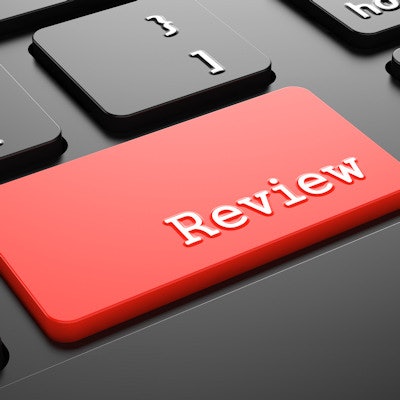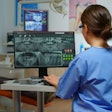
More healthcare providers are getting rated online -- and those ratings matter for attracting patients. Researchers determined which factors increase a provider's risk of receiving poor reviews on Yelp in a study published on October 3 in Oral Surgery, Oral Medicine, Oral Pathology and Oral Radiology.
The study focused on reviews for oral and maxillofacial surgeons in private practice, to understand which factors increase the risk of very poor, one-star reviews. The final study sample included more than 3,800 reviews on Yelp, one of the leading websites for crowd-sourced business reviews.
Numerous factors impacted the likelihood that a practice or clinician would receive a one-star review on Yelp. Clinicians who completed their residency during the 1970s were more than 4.5 times more likely to receive a very poor review compared to clinicians who completed their residency more recently in the 2010s. In addition, compared to male providers, female providers were 2.7 times more likely to receive a one-star rating.
Furthermore, reviews that were nonclinical in nature increased the risk of a poor rating. However, reviews that addressed both clinical and nonclinical components were at lower risk of a poor rating.
Some practice attributes, such as cleanliness and staff behavior, served as protective factors against a one-star review. Conversely, reviews that addressed the practice's billing were a risk factor for being reviewed poorly.
"Several clinician attributes were protective factors when addressed in the review, including temperament and competency/language base," wrote the study authors, led by Dani Stanbouly of Columbia University. "Contrastingly, reviews that addressed the clinician's cost consciousness were at increased risk for being very poor."
Rationale behind the reviews
While the current study was observational in design and it is impossible to know the reasons why a patient would post a negative review on Yelp, the researchers suggested that their results are due to a combination of factors, including implicit and explicit biases.
The discrepancy in reviews by age could be related to patient bias against older providers, the authors noted. For instance, patients of all ages have been shown to prefer younger healthcare providers, and younger providers have been associated with better outcomes, the authors noted. Furthermore, providers who completed their residency in the 1970s may have a smaller online presence and perhaps limited knowledge of online reviews. These factors may cause them to be more susceptible to negative online reviews.
Similarly, the gender gap in positive and negative reviews could be due to higher expectations for female providers, according to the authors. Typically, female providers spend more time with their patients, socially and psychologically contextualize them when communicating with them, and consider the patient's emotions, the authors noted. Patients may expect these humanistic characteristics from female oral and maxillofacial surgeons, but female surgeons may not be able to meet patient expectations due to the limited physician-patient interaction in the field. Therefore, patients may misunderstand the procedure-dominant nature of the specialty and deem female surgeons as "cold" or "insensitive."
Why reviews matter
As of 2021, about 22 million Yelp reviews have been reported by consumers on healthcare. Yelp is the most commonly used website for physician ratings by the U.S. population.
A previous study survey found that nearly 60% of the U.S. population considered online physician ratings in their decisions when selecting a provider. Within this subset of the U.S. population, "35% selected physicians with good ratings and 37% avoided those with bad ratings," explained the authors.
For oral and maxillofacial surgeons and other types of dental providers, the reviews directly affect the success of the practice and how clinicians are perceived by patients. They can also provide a learning opportunity, the authors noted.
"Although unwanted, negative online ratings can provide valuable feedback, both clinical and non-clinical, for all aspects of the practice at hand," Stanbouly and colleagues concluded.



















